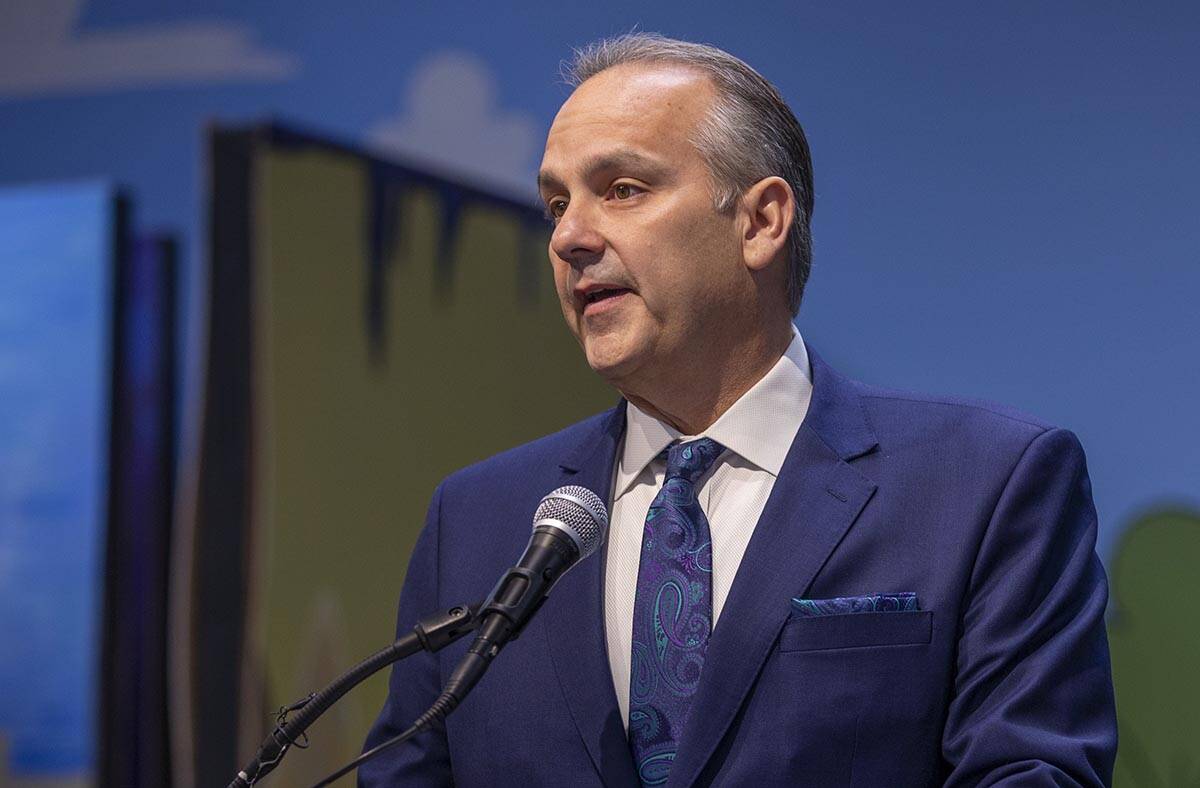More federal funds needed to keep schools open, Jara tells lawmakers
WASHINGTON — Clark County School District Superintendent Jesus Jara told a House subcommittee Wednesday that federal funding used to keep students engaged during early months of the CO VID-19 pandemic is still needed to help the district solve problems that arose after in-person classes resumed.
Jara said federal aid from the American Rescue Plan, approved by Congress last year, helped provide technology to students who otherwise lacked access or the financial means to take part in virtual learning after COVID-19 forced Gov. Steve Sisolak to close the state’s schools in March 2020.
But he said the proposed $3.5 trillion budget reconciliation bill now before Congress is needed to provide additional assistance as schools deal with continuing difficulties arising from the pandemic.
Among them, he said, are the need to hire employees, bus drivers and staff needed to operate effectively, and to provide safe buildings with ventilation for teaching and mental health counseling.
‘Circumstances were unprecedented’
“The circumstances were unprecedented,” Jara told the House Education and Labor Subcommittee on Early Childhood, Elementary and Secondary Education. “… Our priority was to protect students and staff.”
Schools in the Las Vegas Valley closed in 2020. Students began returning for in-person instruction in March 2021 before the full reopening of the district’s schools in early August.
Jara said the plan to reopen involved input from unions, community groups, educators and parents.
Federal money allowed the broad reopening and remains an important cog in the plan to keep schools open. “The needs are great,” he said. Specifically, he cited difficulties the district is having hiring bus drivers, which has led to tardy arrivals in Clark County.
Lawmakers and other witnesses echoed Jara on the problems schools face with staffing shortfalls, as well as dealing with varying state guidance over masks, testing and social distancing.
Jara said the $3.5 trillion budget reconciliation bill under consideration by Congress would help meet those needs.
More money not an answer
But Robert Fellner, vice president and policy director for the Nevada Policy Research Institute, a conservative think tank, said the school district is already flush with cash thanks to prior federal spending and a move by the Nevada Legislature this year to increase education funding.
Fellner said Jara has strong political incentives to seek more money, but the Nevada Policy Research Institute is concerned with improving education for children in Nevada.
“The fact remains, just making the public school system more expensive doesn’t do that,” he said.
The House subcommittee held the fact-finding hearing as Congress prepares to vote on the budget reconciliation bill, known as the Build Back Better Act. The bill includes additional funding for schools, including $450 billion for universal pre-kindergarten education, $85 billion to repair and modernize schools and $35 billion for free school lunches and a summer program for low-income students.
The latter would be important to students of color, who have disproportionately suffered during the pandemic, one expert told the subcommittee.
“Those people with the least resources have suffered the worst,” said David Zweig, a freelance magazine writer focusing on education who also testified before the panel. “It’s what we see in society at large.”
Spending bill faces hurdles
Republicans are opposed to the massive spending bill, which they have described as a liberal wish list of programs sought by special interest groups.
Democrats, meanwhile, are divided on the bill. Senate moderates also have balked at the cost.
President Joe Biden has made passage of the bill and another infrastructure bill a priority. He canceled a planned trip to Chicago on Wednesday to remain in Washington and lobby lawmakers for the bills’ passage.
The House could vote as early as Thursday on the measures.
The reconciliation bill also would increase Pell Grants and expand eligibility for Deferred Action for Childhood Arrivals to help college students.
The legislation would also increase investments to historically Black colleges, tribal colleges and Hispanic-serving institutions.
Also testifying before the panel were Denise Forte, interim chief executive officer of The Education Trust, and Ashish Jha, dean and professor of health services, policy and practice at Brown University.
Jha told the panel that reopening schools was imperative to keep students globally competitive. He said masks, ventilation and testing would provide needed protection to help students return to classrooms.
Contact Gary Martin at gmartin@reviewjournal.com. Follow @garymartindc on Twitter.



